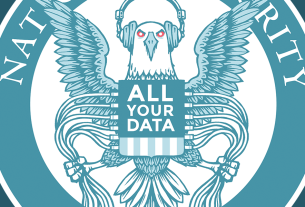Minors, like everyone else, have First Amendment rights. These rights extend to their ability to use social media both to speak and access the speech of others online. But these rights are under attack, as many states seek to limit minors’ use of social media through age verification measures and outright bans. California’s SB 976, or the Protecting Our Kids from Social Media Addiction Act, prohibits minors from using a key feature of social media platforms—personalized recommendation systems, or newsfeeds. This law impermissibly burdens minors’ ability to communicate and find others’ speech on social media.
On February 6th, 2025, EFF, alongside the Freedom to Read Foundation and Library Futures, filed a brief in the Ninth Circuit Court of Appeals in NetChoice v. Bonta urging the court to overturn the district court decision partially denying a preliminary injunction of SB 976.
SB 976 passed into law in September of 2024, and prohibits various online platforms from providing personalized recommendation systems to minors without parental consent. For now, this prohibition only applies where the platforms know a user is a minor. Starting in 2027, however, the platforms will need to estimate the age of all their users based on regulations promulgated by the California attorney general. This means that (1) all users of platforms with these systems will need to pass through an age gate to continue using these features, and (2) children without parental consent will be denied access to the protected speech that is organized and distributed via newsfeeds. This is separate from the fact that feeds are central to most platforms’ user experience, and it’s not clear how social media platforms can or will adapt the experience for young people to comply with this law. Because these effects burden both users and platforms’ First Amendment rights, EFF filed this friend-of-the-court brief. This work is part of our broader fight against similar age-verification laws at the state and federal levels.
EFF got involved in this suit both to advocate for the First Amendment rights of adult and minor users and to correct the dangerous logic by the district court. The district court, hearing NetChoice’s challenge on behalf of online platforms, ruled that the personalized feeds covered by SB 976 are not expressive, and therefore not covered by the First Amendment. The lower court took an extremely narrow view of what constitutes expressive activity, writing that algorithms behind personalized newsfeeds don’t reflect the messages or editorial choices of their human creators and therefore do not trigger First Amendment scrutiny. The Ninth Circuit has since stayed the district court’s ruling, preliminarily blocking the law from taking effect until it has a chance to consider the issues.
EFF pushed back on this flawed reasoning, arguing that “the personalized feeds targeted by SB 976 are inherently expressive, because they (1) reflect the choices made by platforms to organize content on their services, (2) incorporate and respond to the expression users create to distribute users’ speech, and (3) provide users with the means to access speech in a digestible and organized way.” Moreover, the presence of these personalized recommendation systems informs the speech that users create on platforms, as users often create content with the intent of it getting “picked up” by the algorithm and delivered to other users.
SB 976 burdens the First Amendment rights of minor social media users by blocking their use of primary systems created to distribute their own speech and to hear others’ speech via those systems, EFF’s brief argues. The statute also burdens all internet users’ First Amendment rights because the age-verification scheme it requires will block some adults from accessing lawful speech, make it impossible for them to speak anonymously on these services, and increase their risk of privacy invasions. Under the law, adults and minors alike will need to provide identifying documents to prove their age, which chills users of any age who wish to remain anonymous from accessing protected speech, excludes adults lacking proper documentation, and exposes those who do share their documentation to data breaches or sale of their data.
We hope the Ninth Circuit recognizes that personalized recommendation systems are expressive in nature, subjects SB 976 to strict scrutiny, and rejects the district court ruling.



